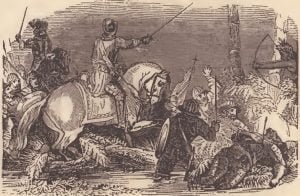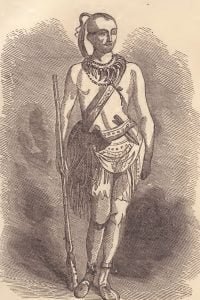Timucua Tribe, Timucua Indians. The principal of the Timucuan tribes of Florida. The name is written Timucua or Timuqua by the Spaniards; Thimagoa by the French; Atimaco, Tomoco, etc., by the English. They seem to be identical with the people called Nukfalalgi or Nukfila by the Creeks, described by the latter as having once occupied the upper portion of the peninsula and as having been conquered, together with the Apalachee, Yamasee, and Calusa, by the Creeks. When first known to the French and Spanish, about 1565, the Timucua occupied the territory along middle St John River and about the present … Read more




